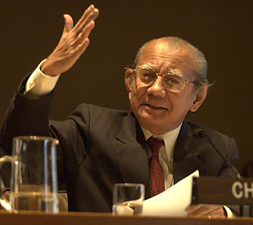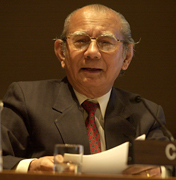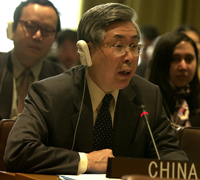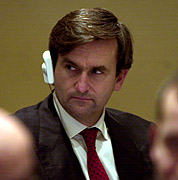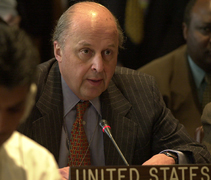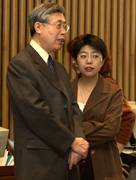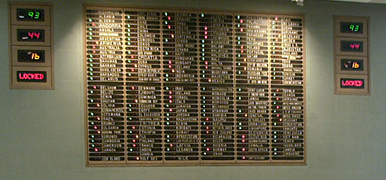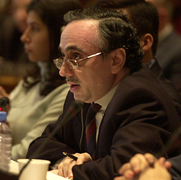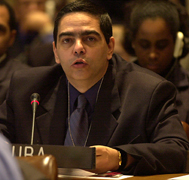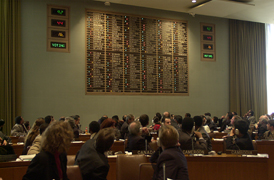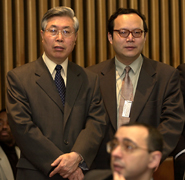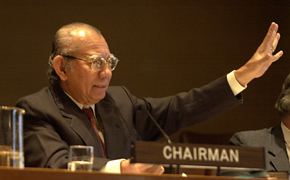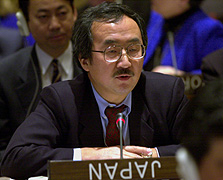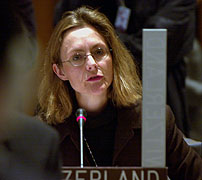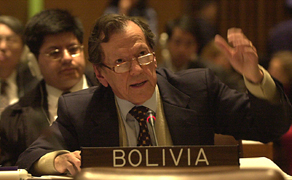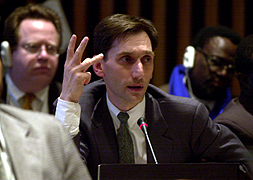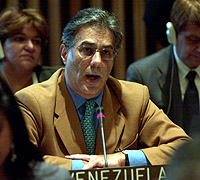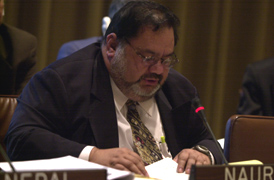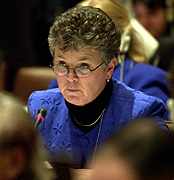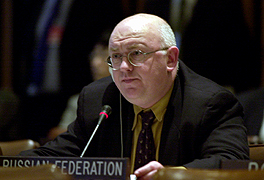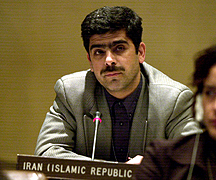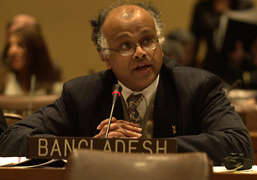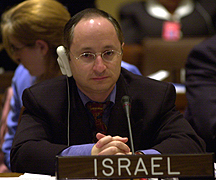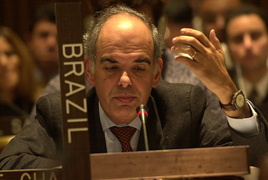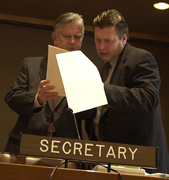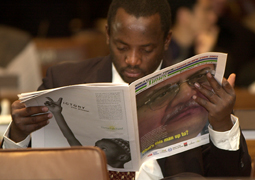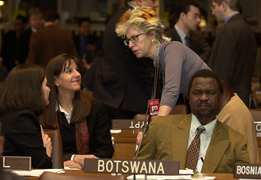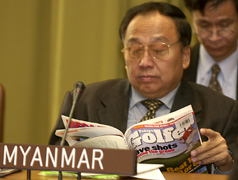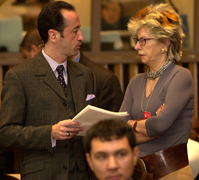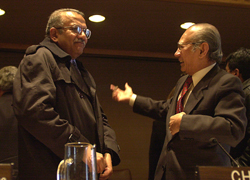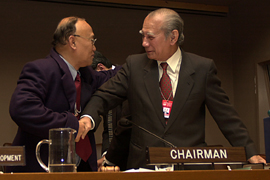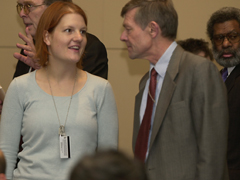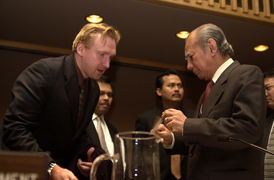|
The World Summit on Sustainable Development Second Preparatory Committee (PrepCom-II)
Journey of Hope: Chair Emil Salim called the process leading up to Johannesburg a Journey of Hope and said that the PrepCom was beginning to draw the map. . . . In a morning Plenary session, delegates addressed the issue of accreditation of the International Campaign on Tibet (ICT) and voted on a motion of no action after which the application of the ICT was rejected. Chair Salim then introduced the following four documents: the Chairman's Summary of the PrepCom; the Chairman's Summary of the Multi-Stakeholder Dialogue; the Chairman's Paper; and Proposals for Partnerships/Initiatives to Strengthen the Implementation of Agenda 21. In the afternoon, delegates made general comments on the Chairman's paper and PrepCom II adjourned at approximately 5:15 pm
|
|||||||||||||||||||||||||||||||||||||||||||||||||||||||||||||||||||||
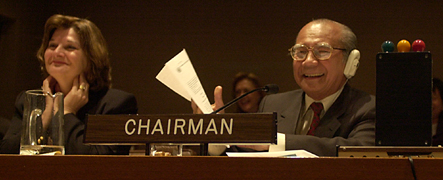 |
| Introduction of the Documents: Chairman's Summary of the PrepCom; Chairman's Summary of the Multi-Stakeholder Dialogue; Chairman's Paper; and Proposals for Partnerships and Initiatives to Strengthen the Implementation of Agenda 21 |
|
|
|
|
|
|
Back to Linkages home | Visit IISDnet
| Send e-mail to ENB |
©
2002, IISD. All rights reserved.
